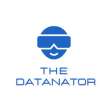Why you need a Data Catalog
What are the Benefits of Data Catalogs when building up a Data Driven Culture?
What are Data Catalogs and why do you need one?
As organizations generate and collect ever-increasing amounts of data, effective data management is more important than ever. One way to improve data management is to use a data catalog, which can provide a number of benefits to both business users and IT teams. Simply put, a data catalog is a centralized inventory of all data assets in an organization. It provides a searchable and accessible repository of metadata, or data about the data, that describes the structure, content, and use of each record. The metadata can include information such as data sources, data owners, data provenance, data quality, and data definitions. A Data Catalog helps a company to become a data-driven enterprise and to build a profitable data culture.
Data Catalogs can be created and managed by IT teams, Data Scientists, or Data Stewards. They can be organized and structured in a variety of ways, such as by data domain, data source, or data owner. Some Data Catalogs can be fully automated, while others require manual maintenance.
What are the Benefits of Data Catalogs?
Data Catalogs offer a number of benefits that make them essential for any organization that wants to make the most of its data assets. You will find five critical key reasons and benefits of Data Catalogs down below:
Key Reason 1: Improved Data Discovery and Access
One of the main benefits of a Data Catalog is that it makes it easier for business users to find and access the data they need. With a comprehensive catalog of all the company's data assets, users can quickly search for and directly access the data they need without having to go through IT teams or Data Scientists. This saves time and increases productivity by allowing users to access the data they need when they need it.
Key Reason 2: Increased Trustworthiness and Quality of Data
Data Catalogs can also improve the trustworthiness and quality of data. By providing a clear and detailed description of the structure, content, and use of each data set, Data Catalogs can help ensure that data is accurate, consistent, and reliable. This is especially important in regulated industries or where data quality is critical to business decisions.
Key Reason 3: Improved Data Governance and Compliance
Data Catalogs can also support data governance and compliance efforts. By providing a central repository of data assets, Data Catalogs can help ensure that data is used and managed in accordance with regulatory and organizational policies. They can also help identify and manage sensitive data, such as personally identifiable information (PII) or protected health information (PHI), to ensure compliance with privacy regulations.
Key Reason 4: Improved Collaboration and Knowledge Sharing
Data Catalogs can facilitate collaboration and knowledge sharing between data teams and business users. By providing a central repository for metadata, data catalogs can help ensure that all stakeholders are working with the same information and avoid duplication of effort. This can help break down silos between teams and foster a culture of data-driven decision making.
Key Reason 5: Higher ROI on Data Investments
Finally, Data Catalogs can help organizations increase their ROI on data investments. By making data more discoverable, trustworthy and accessible, Data Catalogs can help companies extract more value from their data assets. This can lead to improved business outcomes, such as increased revenue, reduced costs, or a better customer experience.
Conclusion
Data Catalogs are becoming an increasingly important component of effective data management. By providing a centralized inventory of all an organization's data assets, Data Catalogs can help improve data discovery and access, increase data trustworthiness and quality, support data governance and compliance, facilitate collaboration and knowledge sharing, and increase ROI on data investments. Whether you are an IT professional, Data Scientist, or business user, a Data Catalog can help you make the most of your data assets.
About the Creator
The Datanator
Just a regular dude, who likes to write and share all about Data stuff (and other interesting things).







Comments
There are no comments for this story
Be the first to respond and start the conversation.